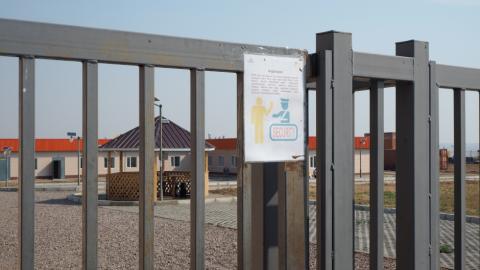
Members expose impact of mining on the environment and defenders in Mongolia
A recent joint report by ESCR-Net members, Centre for Human Rights and Development - Mongolia (CHRD-Mongolia) and Asian Forum for Human Rights and Development (FORUM-ASIA) illustrates the negative impact on the environment and human rights defenders (HRDs)and women human rights defenders (WHRDs) caused by extractive industries in Mongolia. The report is based on a May 2019 fact finding mission to the north-eastern provinces of Khentii and Dornod and looks at the impact of several extractive projects including Canada based mining company, Steppe Gold.
Extractive industries have taken on an increasingly important role in the Mongolian economy. In an attempt to regulate extractive operations in Mongolia, CHRD-Mongolia and other civil society actors successfully advocated for legislation around public disclosure and meaningful consultation with local communities. However, much of the legislation regarding extractive operations in Mongolia is being inadequately implemented and has been watered down due to political pressure by extractive industries. Additionally, a series of initiatives to boost foreign investment in Mongolia, much of it in mining, has created an environment that strongly favors corporations and investors. As a result, extractive corporations have repeatedly violated the rights of local communities to live in a safe and healthy environment, and the government has repeatedly failed to hold companies accountable for violations of environmental regulations.
Due to the failure of government to hold corporations to account, local communities have begun to organize to protect their environment. Many communities affected by operations of extractive industries have not been meaningfully consulted and have grown increasingly concerned due to the risk of highly contaminating extractive process being carried out in the proximity of water sources in violation of national legislation. This has led some communities to protest the operations, while other communities seem to have a more positive view given the economic benefits of mining operations. This has caused tensions and divisions between neighboring communities and the report expresses concrete concerns that violence could erupt between communities.
Likewise, community-based (W)HRDs are faced with harassment and threats due to their legitimate work to protect the land and environment. The report specifies that threats by phone calls is one of the main strategies applied to intimidate (W)HRDs and their families. Slander is also widely used to discredit (W)HRDs opposing mining activities, accusing them of having hidden economic interest. Photographic evidence also shows protesters being beaten by the private security personnel of Steppe Gold, which is one of the major actors in the country’s mining operations. One WHRD was detained by Steppe Gold’s security personnel for five hours, during which she suffered sexual harassment. These attacks on (W)HRDs have been carried out with impunity - reported threats have not been investigated and the local doctor refused to issue medical certificates showing injuries suffered by the beatings.
These attacks are part of a wider global trend of attacks against environmental HRDs, particularly in the context of extractive industries. Numerous reports repeatedly highlight the dangers of protecting the environment. According to the Global Analysis 2018 by ESCR-Net members, Front Line Defenders (The International Foundation for the Protection of Human Rights Defenders), 77% of HRDs killed in 2018 were working on land, environmental or indigenous peoples’ rights.
For years, ESCR-Net members and allies have worked collectively to advocate for a strong treaty at the United Nations to prevent and remedy human rights violations by corporations. Recently members joined treaty negotiations in Geneva. You can read the common position here.
You can read the entire report by CHRD-Mongolia and FORUM-ASIA (in English or Mongolian) here.
